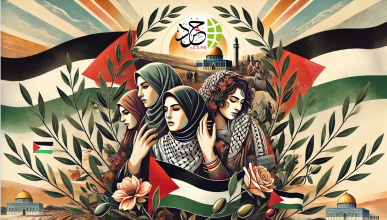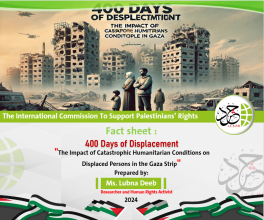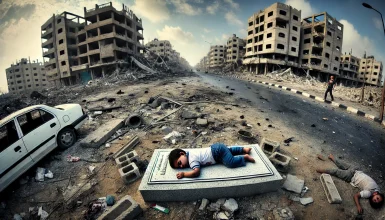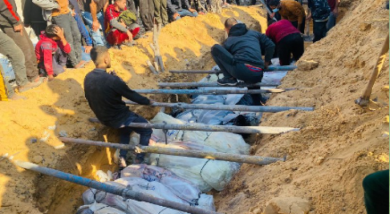
A humanitarian appeal; your intervention to address the humanitarian crises of the Palestinian refugees in Lebanon is an urgent need and a moral and legal duty
Ref: 13/2018
Date: 24 Nov 2018
Original lang.: Arabic
Ladies and Gentlemen:
– Secretary-General of the United Nations;
– Secretary-General of the League of Arab States;
– Secretary General of the Organization of Islamic Cooperation;
– Secretary General of the Gulf Cooperation Council;
– Secretary General of the Council of the European Union;
– United Nations High Commissioner for Human Rights;
– United Nations High Commissioner for Refugees;
– Commissioner-General of the United Nations Relief and Works Agency for Palestine Refugees in the Near East.
Gracious greeting,
Subject: A humanitarian appeal; your intervention to address the humanitarian crises of the Palestinian refugees in Lebanon is an urgent need and a moral and legal duty
The International Commission to Support Palestinians’ Rights (ICSPR) highly appreciates your continued commitment to intervene for human and humanitarian purposes. We are addressing you today in light of the unprecedented challenge to the situation of Palestinian refugees in the refugee camps in the Republic of Lebanon, especially with the recent US decisions to reduce its financial contributions to UNRWA, and its impact on UNRWA’s level of services to Palestinian refugees.
449,957 is the total number of refugees registered at UNRWA in Lebanon, many of whom live in the 12 camps in Lebanon, where the Palestinian refugees constitute 10% of Lebanon’s population, which considered densely populated country. Palestinian refugees in Lebanon do not enjoy civil or social rights. Moreover, they also do not enjoy the right to work.
Palestinian refugees in Lebanon are not official citizens of another country and are thus unable to acquire the same rights as foreigners living and working in Lebanon, where recent statistical studies show that poverty rates in the refugee community reach 73% and unemployment 56%.
According to information published on UNRWA’s official website (Arabic page), the Palestinian camps in Lebanon suffer from the following problems: (High poverty rates – Unemployment rates – Huge population creep from Nahr el-Bared to Beddawi – High turnout on UNRWA services due to population – Many housing units need severe rehabilitation – Limited employment opportunities – Lack of a sewage system – Difficult socio-economic conditions – Frequent water shortages – Narrow roads – Population overcrowding – Damaged infrastructure – Bad environmental health – Wet and overcrowded housing – High school escaping rates – Small houses – Bad housing conditions – High levels of chronic diseases – Bad living conditions).
Ladies and Gentlemen:
To date, overall poverty rates reach 73%, and youth are the most affected by poverty among refugees, where 74% of adolescents are below the poverty line, while 5% live in extreme poverty. As for the suffering of the Palestinians of Syria from poverty, it can be described as the worst, where 9.2% of them live in extreme poverty (3500 are unable to meet basic food needs), and 89.1% are poor in general (35,000 can not meet food and non-food basic needs).
The rate of unemployment among Palestinians in Lebanon is 56%. On the other hand, the unemployment rate among Palestinians in Syria is 71.5%. About 80% of the labor force works of Palestinians in Lebanon are self-employed, and the main source of income among Palestinians in Lebanon is freelancing 41%, followed by paid work 37.8% and UNRWA assistance 33.5%. 53.4% of the workers (Palestinians in Syria) receive their wages daily, while the majority (97.7%) have verbal agreements only with their employers, which allows the termination of employment at any time without prior notice. Moreover, 98.2% of employees do not receive sick or annual leave.
The food insecurity in general remains average and high, with 38% of the Palestinians in Lebanon enjoying food security, 38% suffering from average rate of food insecurity and 24% from high rate and severe food insecurity. 27% of children are among Palestinians in Lebanon living in families suffering from severe food insecurity, which is disturbing.
78% of Palestinians houses in Lebanon suffer from humidity, 62% suffer from water leakage, 52% suffer from poor ventilation and 55.2% suffer from poor lighting. This contributed to increase the suffering from chronically ill. Moreover, 10% of the Palestinian families suffer from disabilities.
Ladies and Gentlemen:
The clarity of international law and moral principles concerning Palestinian refugees is beyond doubt and questioning. The main obstacle to implementation is the international policies for the protection of Palestinian refugees and the guarantee of their rights. The refusal of the occupation state to abide by these international legal and moral policies, in addition to the unwillingness of the international community to exert sufficient pressure for the return of refugees, and compensate them for the suffering they suffered, and hold the occupation state accountable for their crimes against the Palestinian refugees.
Therefore, we hope you will act now, as tomorrow it might be too late, to:
- Ensure that Palestinian refugees enjoy international protection until the implementation of their right to return to their homes, from which they were forcibly displaced.
- Adopt this appeal in your capacity and / or on behalf of your organization and take all international measures to ensure that the demands and rights of Palestinian refugees in Lebanon are met, including enhancing the level of UNRWA’s services to them and overcoming the adverse effects of recent US resolutions;
- Your clear announcement of rejection of plans aiming to liquidate the role of UNRWA, through the gradual reduction of their services or attempts to transfer those services to host States, taking into account the fact that UNRWA reflects the moral, legal and political responsibility of the international community for the creation of the Palestinian refugee problem and its commitment to implement their right to return to their homes from which they were expelled in 1948;
- Work together with and alongside the Lebanese government to prepare a developmental plan that includes all refugee camps and gatherings, with the participation of UNRWA, the Palestinian political forces, civil society institutions, the popular committees, the host country, donor countries and the local community in general, taking into account the provision of civil, economic and social rights to refugees and the elimination of discrimination against them in the field of employment, health and other fields.
Best Regards,,,





